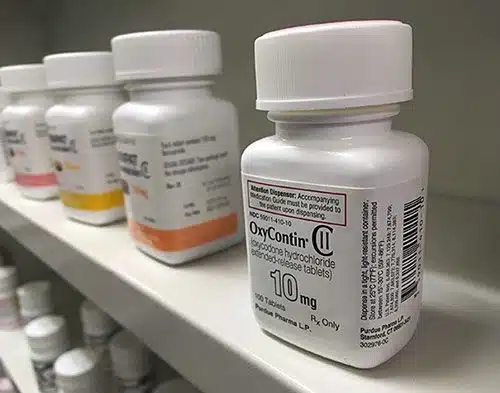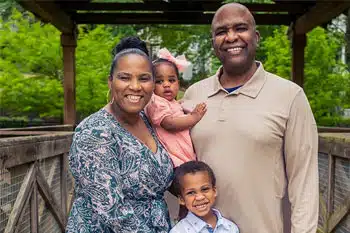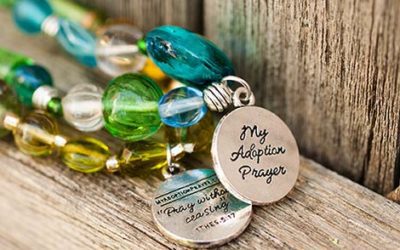
Recently, opiate use and addiction have risen dramatically in the U.S. This raises the question: what exactly are opioids? Prescription opioids include OxyContin, Vicodin, Morphine, and Methadone. Doctors prescribe these medications to treat pain and, in the case of Methadone, to help with opioid addiction.
When hopeful adoptive parents consider the possibility of welcoming an infant who was exposed to opioids, it’s important to approach the situation with care and compassion. The first step is to dive into some thorough research, as understanding the potential effects of prenatal drug exposure can be quite complex and varies from case to case. Each situation deserves its own thoughtful evaluation to ensure the best outcomes for everyone involved.
Here, we’ll share what you need to know about the short-term and long-term effects of prenatal opioid exposure, how hospitals diagnose and treat withdrawal symptoms, what services and support are available for your family, and most importantly, the powerful difference a loving, stable home can make in your child’s development and future.
Table of Contents
- Understanding the Scope of Opioid Use
- What Are the Effects of Prenatal Opioid Use?
- How Do Hospitals Diagnose and Manage NOWS?
- How is NOWS Treated in the Hospital?
- How Do We Care for Our Baby During Withdrawal?
- What Happens After Hospital Discharge?
- Recommended Follow-Up Care
- The Benefits of a Loving, Safe, Supportive Home
- Should We Adopt a Baby Exposed to Opioids?
Understanding the Scope of Opioid Use
Fentanyl is a synthetic opioid that is often made illegally, and finally, heroin is an illegal drug. Unfortunately, many pregnant women are addicted to these opioids, both legal and illegal. According to 2021 estimates in the United States, one baby is diagnosed with Neonatal Abstinence Syndrome (NAS) every 24 minutes, which is more than 59 newborns diagnosed every day.
To put this in perspective, according to the CDC, about 7% of women reported using prescription opioid pain relievers during pregnancy in 2019, and of those, 1 in 5 reported misuse. The rate of NAS increased from 4.0 per 1,000 births in 2010 to 7.3 per 1,000 births in 2017. However, there’s significant geographic variation: Nebraska reported 1.3 cases of NAS per 1,000 births, while West Virginia reported 53.5.
What Are the Effects of Prenatal Opioid Use?
The most important thing to remember is that neonatal opioid withdrawal syndrome (NOWS) is treatable. Also, not all opiate-exposed babies face symptoms of withdrawal. According to Dr. Julia Bledsoe, a pediatrician specializing in adoption medicine and drug and alcohol exposure, the timing and amount of the mother’s drug use will influence whether the baby experiences Neonatal Abstinence Syndrome.
Before deciding whether you are open to a birth mother who has had opioid substance abuse, it is crucial to understand the effects opioids have on the baby. What are the short-term and long-term effects?
Short-Term Effects
The short-term effects of a baby born exposed to opioids will vary. According to the American Academy of Pediatrics (AAP), babies can show different symptoms of NOWS depending on various factors:
- What type of opioid the mother used
- When during the pregnancy the drug use occurred
- Whether the mother also used other substances
The timing of NOWS also varies; for some infants, withdrawal symptoms may not occur until five to seven days of age, at which time many infants have already been discharged from the hospital.
The most common symptoms are:
Central nervous system irritability:
- High-pitched continuous crying
- Tremors, convulsions, tight muscle tone, and overactive reflexes
- Decreased sleep
- Seizures
Autonomic nervous system activation:
- Sweating and fever
- Frequent yawning and sneezing
- Increased respiratory rate
- Nasal stuffiness and congestion
Gastrointestinal dysfunction:
- Throwing up or diarrhea
- Poor feeding or sucking, resulting in slow weight gain
The majority of infants tend to recover within two to three weeks and continue to grow and develop as expected. When provided with appropriate prenatal and postnatal care, babies who were exposed to opioids in utero can flourish.
Long-Term Development and Potential Challenges
The long-term effects of NAS and NOWS are a little unclear. However, research can provide guidelines on what to look for and what to expect as these children grow.
While there is a chance that a baby born with NAS may experience some developmental delays as they grow, so far, they do not seem significant. And by school age, most of these children seem to be on track with their peers.
However, research does suggest that some extra care is required to ensure needs are addressed as children develop. A 2022 study led by Dr. Ju Lee Oei stresses, “Attention needs to focus upon events after withdrawal. Recognizing that prenatal substance use has consequences beyond the neonatal period provides an enormous opportunity to support not only the infants, but their families and communities.”
How Do Hospitals Diagnose and Manage NOWS?
If physicians are evaluating your baby for NAS, you are most likely to hear them refer to the Finnegan tool. Developed in the 1990s, this tool has been modified several times. The modified Finnegan tool evaluates 21 of the most common symptoms and assigns a score based on their severity in the baby. A score above eight is considered high, and these scores are used to determine when the baby can stop receiving morphine.
A newer tool you may encounter is the Eat, Sleep, Console (ESC) Approach, which is guided by the infant’s clinical symptoms. It is much simpler than the Finnegan tool and focuses on three questions:
- Does the infant eat an age-appropriate amount?
- Sleep a developmentally appropriate amount of time?
- Console within a typical amount of time?
Some research has found that using the ESC Approach is associated with infants being less likely to be treated with morphine and being discharged from the hospital more quickly.
According to a 2020 clinical report by the AAP, nonpharmacological care should be the first-line treatment for babies with NOWS. What that means for adoptive parents is that they need to be present and engaged at the hospital, staying with the baby; snuggling and holding them, practicing skin-to-skin contact, and assessing the baby’s needs for rest, food, or a diaper change.
If that’s not working, they start the babies on opioids such as morphine, buprenorphine, or methadone, then see how the baby does and reassess while continuing to do the nonpharmacological treatment.
Once the baby is free from the signs of opioid withdrawal (can sleep, eat, be soothed), then they can leave the hospital.
How is NOWS Treated in the Hospital?
If an infant is known to have been exposed to opioids, the AAP guidance states that the infant should be observed for at least three days to see if withdrawal symptoms develop. Infants exposed to buprenorphine and sustained-release opioids should be observed for four to seven days, and infants exposed to methadone for five to seven days.
It’s important for the adoptive family to be in the hospital as soon as possible after birth, learning how to do nonpharmacological interventions. These might seem just like regular parenting, but there’s a little bit more to it because the baby may be difficult to console. Hospital staff are there to support you and ensure you’re ready to take your baby home. This allows you to go home knowing your baby very well, knowing the signs of opioid withdrawal, and knowing how to move things forward with your baby once you get home.
While NOWS has traditionally been managed in the NICU, this is not always necessary. NOWS-related symptoms can often be managed in a traditional hospital room setting.
For some infants experiencing NOWS, medication is necessary, and morphine is used most often. However, several studies have found that short-term outcomes were actually better for babies who received methadone rather than morphine. One study found that, compared to morphine, methadone was associated with a 14% shorter hospital stay for the baby and a 16% shorter length of treatment time. There is also ongoing research suggesting buprenorphine may be effective, especially if the mother was receiving it prenatally. Sometimes an additional medication will be added to morphine, typically clonidine or phenobarbital.
How Do We Care for Our Baby During Withdrawal?
The recommended care to soothe and comfort NOWS babies includes:
- Skin-to-skin contact: Dress your baby in only a diaper and place your baby against your bare chest
- Swaddle your baby (often with arms or hands out of the wrapping)
- Keep your baby’s surroundings quiet with low lights
- Gently rock your baby if she is fussy
- Offer your baby a pacifier for nonnutritive sucking, which satisfies a baby’s natural reflex to suck and can trigger the release of endorphins for comfort and self-soothing.
- Maintain warmth in the environment
- Infant massage
- Cuddling and rocking
There are interventions that you, as the adoptive parent, can do to help your baby during withdrawal. These non-medication approaches can make a significant difference in your baby’s comfort and recovery.
Dr. Joshua Sharfstein is a pediatrician and professor at the Johns Hopkins Bloomberg School of Public Health. He believes that, “There’s no evidence of ‘huge, obvious differences’ in children who were exposed to opioids in the womb, there is a lot of research showing that the social environment plays a critical role in determining a child’s future.”
He continues, “We certainly should learn the lessons of what I would call the ‘crack baby panic.’ There were magazine covers, newspaper stories [about] what was happening to the brains of these babies. Would they be permanently scarred?”
“The long-term evidence is it really doesn’t look like there’s much of anything from cocaine in terms of chemical impact on the brain. The real harm is if the baby is going home into an environment that’s unsafe, there are all kinds of problems,” Dr. Sharfstein concludes.
He also emphasizes, “It’s really the home they go into that’s more important than the short duration of withdrawal symptoms.”
What Happens After Hospital Discharge?
According to the AAP, an infant who has had opioid exposure should be seen by the pediatrician within 48 hours of leaving the hospital. After this initial appointment, you may need to schedule pediatrician visits more frequently than you would for infants who did not experience exposure.
Having an adoption-competent pediatrician can help ensure your doctor is especially aware of the unique needs your child and family may face. Infants may also be sent home with medications in order to shorten hospital stays.
Specialized Follow-Up Clinics
Once you have a pediatrician you trust, you can also look for a post-hospital discharge program in your area. For example, Johns Hopkins has a Neonatal Abstinence Syndrome Clinic that provides follow-up services at four, eight, and 18 months of age to provide specialized services related to NAS. Check to see if similar programs exist in your area.
Recommended Follow-Up Care
Perhaps the most important takeaway from research is that regular monitoring and early intervention can address concerns as they emerge. Recommended follow-ups include:
- Neurodevelopmental assessments to identify motor deficits and cognitive delays, performed by Early Intervention programs
- Psycho-behavioral assessments to identify hyperactivity, impulsivity, and attention deficit in preschool-aged children, as well as school absence, failure at school, and other behavioral problems in school-aged children
- Ophthalmologic assessment due to an increased incidence of nystagmus and strabismus
- Awareness of the increased risk of ear infections
- Development of a crying plan with parents to avoid Shaken Baby Syndrome
- Awareness of the increased risk for SIDS and appropriate parental education
Available Services and Support
Early Intervention (Birth to Age 3)
As your baby grows, if you and/or your pediatrician are concerned about your child’s development, you can access your state’s early intervention system. Early intervention services are mandated by Part C of the Individuals with Disabilities Education Act (IDEA). Early intervention refers to the array of services available to babies and young children (0-3 years old) with developmental delays and disabilities, and their families.
Examples of services your child can receive through early intervention include speech therapy, physical therapy, assistive technology, and nutrition services. Services are guided by an Individualized Family Service Plan (IFSP). Many states refer to this process as Child Find, and you can find your state’s early intervention contact information through the CDC website.
Special Education (Ages 3-21)
When your child turns three, they are no longer eligible for early intervention and instead transition to Part B services, which provide services after Part C and until children are 21.
While early intervention services are primarily family-focused, the school becomes more central when children begin to be served by Part B. The guiding document for the child once they turn three is an Individualized Education Program (IEP).
Parent Resources
There are almost 100 Parent Training and Information Centers (PTIs) and Community Parent Resource Centers (CPRCs) in the United States. These are designed and funded specifically to support families with children with special needs. These centers can help you navigate services and advocate for your child.
Interdisciplinary Services
As you and your family access early intervention and special education services, you may come into contact with a range of professionals, including speech-language pathologists, occupational therapists, and physical therapists. It can be helpful to become familiar with the range of services available in your area, so you are prepared should you need them.
The Benefits of a Loving, Safe, Supportive Home
As you think about whether you should adopt a baby exposed to opioids, know that the environment these babies come home to seems to be of higher importance. Having a safe, loving, supportive home seems to make up for the tough start these babies have.
Research provides powerful evidence of the impact adoptive parents can make. A study conducted in 2021, “Preschool Language Development of Children Born to Women with an Opioid Use Disorder,” found that while children with prenatal opioid exposure had poorer language skills at age four and a half, the presence of sensitive parenting, a stimulating home environment, and high-quality early care and education could greatly reduce that disadvantage.
Their research showed that “sensitive, non-intrusive parenting and engagement in Early Childhood Education (ECE) can help to buffer these children against early language difficulties.”
And as Dr. Oei stated in a 2022 study, “there is enormous opportunity to ameliorate the consequences of prenatal drug exposure on both the parent and child, with general principles of harm minimization, attention to general health care and a supportive and enriched environment that takes advantage of the benefits of neuroplasticity.”
Even under ideal circumstances, any baby or child can experience developmental delays or other issues. No child comes with guarantees, and all children, adopted or not, will have some issue that a family needs to deal with because no one is perfect.
However, we love our children unconditionally, and our job as parents is to love them, help them grow, and give them the best chance for a successful and happy life.
Should We Adopt a Baby Exposed to Opioids?
There are certainly many unknowns in raising a child who has been exposed to opioids prenatally. This can be intensified by the unknowns that can come with adoption.
However, basic awareness of the issue and openness to the challenges it may pose can give parents a significant advantage. Seeking out adoption-competent professionals who will work with your child and your family’s unique needs can be an essential part of the journey. Keeping a close eye on your child’s development and possible extra needs, as well as being open to accessing services and supports, puts you in a strong position to best support your child and your family.
Most importantly, remember that the loving, stable home you provide makes a profound difference in your child’s life and future.
Editor’s Note: This article was originally published on September 15, 2021, and has since been updated.
As Vice President of Lifetime Adoption, Heather Featherston holds an MBA and is passionate about working with those facing adoption, pregnancy, and parenting issues. Heather has conducted training for birth parent advocates, spoken to professional groups, and has appeared on television and radio to discuss the multiple aspects of adoption. She has provided one-on-one support to women and hopeful adoptive parents working through adoption decisions.
Since 2002, she has been helping pregnant women and others in crisis to learn more about adoption. Heather also trains and speaks nationwide to pregnancy clinics to effectively meet the needs of women who want to explore adoption for their child. Today, she continues to address the concerns women have about adoption and supports the needs of women who choose adoption for their child.
As a published author of the book Called to Adoption, Featherston loves to see God’s hand at work every day as she helps children and families come together through adoption.





0 Comments